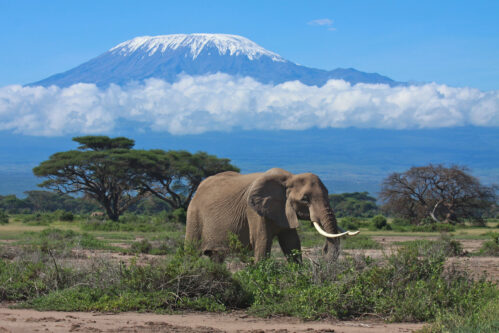
Climbing Mount Kilimanjaro is an incredible adventure that requires a good level of fitness and some preparation. Training for this trek will help you enjoy the experience with less discomfort and a higher chance of reaching the summit. Here’s a suggested training plan that you can follow:
1. Cardiovascular training: Aim for at least 4-5 cardiovascular workouts per week, each lasting 30-60 minutes. This can include activities such as brisk walking, jogging, cycling, or swimming. As you get closer to your climb, increase the duration and intensity of your workouts.
2. Strength training: Incorporate full-body strength training sessions into your routine at least twice a week. Exercises like squats, lunges, push-ups, pull-ups, and planks can help build the necessary strength for climbing. Don’t forget to include core exercises, as a strong core will improve your balance and stability on the mountain.
3. Hiking: Go for regular hikes, preferably on hilly terrain, to build your endurance and get used to walking for long periods. Start with shorter hikes and gradually increase the distance and elevation gain as you progress. As Kilimanjaro is a multi-day trek, try to do back-to-back hikes on weekends to simulate the continuous days of hiking you will experience on the mountain.
4. Altitude training: If possible, try to hike or train at higher altitudes to help your body adapt to the reduced oxygen levels you’ll encounter on Kilimanjaro. If you don’t have access to high-altitude locations, consider using altitude training masks or visiting specialized altitude training facilities.
5. Flexibility and balance exercises: Incorporate stretching and balance exercises, like yoga or Pilates, into your training routine. This will help improve your flexibility, balance, and overall muscle control, which can be beneficial on uneven terrains.
6. Backpack training: During the climb, you’ll be carrying a daypack with essential items like water, snacks, and extra layers. To prepare for this, practice hiking with a loaded backpack to get used to the weight and improve your endurance.
7. Mental preparation: Climbing Kilimanjaro can be mentally challenging, with long days of hiking and the potential for altitude sickness. Practice staying positive, develop coping strategies for when you feel tired or overwhelmed, and be prepared to adjust your expectations if necessary.
Remember to consult with your doctor before starting any new exercise program, especially if you have any pre-existing medical conditions or concerns. It’s essential to give yourself enough time to train – at least 3 to 6 months before your climb – to ensure you are physically prepared for the challenge ahead.